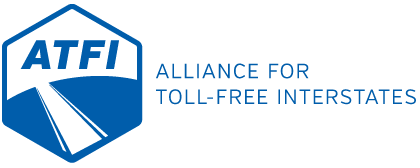Toll-dodging drivers on the Henry Hudson Bridge have racked up an eye-popping $23.6 million in debt between November 2012 through March 2014, The Journal News has learned.
That amount includes $2.2 million in actual tolls and $21.4 million in late fees and violation charges on top of that, according to the Metropolitan Transportation Authority.
In November 2012, the MTA eliminated cash lanes at the span to test all-electronic toll collection. Cameras at the toll plaza take photos of license plates as vehicles breeze through without stopping. For vehicles without E-ZPass, owners are mailed bills to the address listed on the vehicle's registration record. Each trip across the Henry Hudson, which connects the Bronx and Manhattan, is $5 without E-ZPass.
Of the $8.4 million in tolls billed by mail from November 2012 through March, the MTA has collected about 69 percent, said MTA Bridges and Tunnels Chief Financial Officer Donald Spero. It's unclear how many drivers are not receiving the bills, ignoring them or just confused about how the system works. Signs are posted near the bridge and the MTA allows people to pay by mail, online or over the phone.
During the same period, nearly $69.6 million in tolls was collected through E-ZPass at the bridge, compared with $5.7 million for tolls by mail.
If motorists don't pay mailed bills after 60 days, they are hit with a $50 violation for every unpaid trip, in addition to a $5 late fee and the original toll. Under current state law, toll authorities can only pursue long-standing unpaid tolls through debt-collection companies and civil litigation.
Over the past five years, drivers have failed to pay some $150 million in tolls across the state, officials say. And as toll agencies embrace new technology and phase out cash toll lanes to reduce congestion, toll agency leaders fear they could lose even more revenue.
Several times in the past year, state lawmakers have unsuccessfully pushed for legislation that would allow toll agencies and the Department of Motor Vehicles to suspend vehicle registrations of chronic offenders. In January, Gov. Andrew Cuomo included such legislation in his budget proposal, but it was dropped in the final budget deal.
"We will continue to work together with the Legislature to crack down on drivers who don't pay their fair share," said Karen Rae, deputy secretary to the governor for transportation.
Spero said in a statement that even though many motorists pay what they owe, "we believe that effective and efficient toll violation laws would deter toll evasion and enable agencies to collect tolls that are due.
Toll evaders are also big concern for the state Thruway Authority because it plans to use Tappan Zee Bridge toll revenue to pay for the $3.9 billion Tappan Zee replacement project. The current Tappan Zee is set for completely cashless tolling next year to ease traffic flow during construction of the new span. The new bridge is expected to have all-electronic toll collection.
"I'm going to do everything possible to make sure these tolls are as low as possible — that's why going after chronic toll evaders is an important piece," said state Sen. David Carlucci, D-New City.
Carlucci introduced a revised bill this spring that passed the Senate, but stalled in the Assembly. In that version, the Thruway Authority, MTA and Port Authority of New York and New Jersey could partner with the DMV and other states to suspend vehicle registrations after registered owners fail to respond to five toll-due notices. Carlucci said he plans to pursue the legislation again in the fall.
"People are just not aware of the problem and don't know the extent of how serious it is — and how that money can go to mitigate tolls and infrastructure around the state," he said.
Assemblyman Thomas Abinanti, D-Greenburgh, said he is against the idea of imposing more severe penalties as toll agencies eliminate the cash option.
"Not everyone has a stable living environment where they get mail regularly and they have checking accounts and they can pay bills easily," he said. "You are making people — who would otherwise pay if the given the opportunity — scofflaws."
Other states that have switched to all-electronic toll collection have also amended their laws to give toll agencies more enforcement power. Maryland, for instance, enacted a law in 2013 that allows the Maryland Transportation Authority to work with the state's department of motor vehicles to block vehicle registration renewals or, in some cases, immediately suspend the registrations.
In Texas, a law passed last year is even stricter. Drivers with 100 or more unpaid tolls — defined as "habitual violators" — could have their vehicles banned from certain roads operated by the North Texas Tollway Authority. Drivers who don't comply with the ban face a $500 fine, an impounded vehicle, or both.

